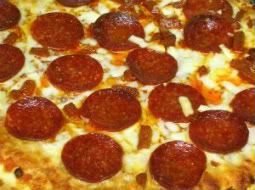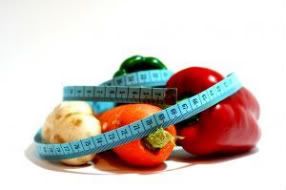A Google search for “freshman fifteen” currently yields an impressive 166,000 results. (Although apparently, the actual first-year weight gain is closer to five pounds.) High school seniors hear the statistics and vow “It won’t be me.” College students, especially women, engage in a constant struggle to prevent putting on pounds, or lose the weight they’ve already gained.
These students are baraged with information about why it happens. Alcohol is charged as a major problem. Fast food is blamed, buffet-style meals in the dorm room cafeteria. Eating food late at night, lack of exercise. There is no shortage of advice on preventing the gain either. “Set limits,” or “Eat breakfast.” We’re told to “get enough sleep” and “exercise regularly.”
But the dieticians doling out the advice seem to have forgotten the 4-6 years they spent in college getting their degrees. College students are in a unique, stressful situation. We know we shouldn’t eat fast food, but we don't have the time or money to cook. We know we should get enough sleep, but we need to finish a paper. We know we should fix ourselves a nutritious breakfast, but something quick and easy sounds much more appealing. (Or maybe nothing at all.) We tend to eat late. Those newly freed from parents and handed responsibility for their own diet and health, need realistic ideas about how to fit a nutritious diet into their lifestyle.
I am a recent college graduate, preparing to begin a Master’s Degree in Public Health in the fall. I understand what it feels like to worry about my weight, but not have time to prepare myself a healthy meal. I too have wondered “Is pizza really that bad?” and “Does alcohol really make you gain weight?” What about you?
Since high school, I have not been content in relying on what a magazine says about these questions. I keep vigilant watch on the latest university diet and nutrition studies, and I’ve already looked up the nutrition information for that restaurant your friends want to meet at tonight. I’ve done the work for you. And every day, I plan to share with you a little bit of what I’ve learned.
An FYI: No, I didn’t gain the freshman 15. I actually lost it.

An FYI: No, I didn’t gain the freshman 15. I actually lost it.
So what are the answers to those questions, the two I have endlessly pondered?
When faced with the options, no, pizza is really not "that bad." In college, you will inevitably find yourself hungry late at night. It’s better than fast food (although we’ll get to the healthiest options there later) because you can load it with vegetables. Order light cheese and thin crust, and one piece will be approximately 200 calories.(Click on the "Garden Fresh.") Blotting the grease removes another 40 calories (or 4.5 grams of fat). The new whole wheat crust at Papa John’s is another great option, with 6 grams of dietary fiber a slice.(Click a pizza.)
As for alcohol, if you’re anything like me, you’ve heard a range of opinions about its nutritional value. Most dieticians will tell you as far as its effect on weight goes, a calorie is a calorie.(An example) But I’ve never understood why if that was true, adding alcohol calories alone to my own diet, and not any extra food calories, does not result in weight gain. This study backed up my personal experience. It studied the relationship between alcohol and 8-year weight gain and women and found that moderate drinking (or up to 30 grams a day) is not associated with weight gain. (About 11 grams of alcohol are in a light beer.) IMHO, it's the food we tend to consume after drinking that's the problem. So, when it comes to drinking, as I’m sure you’ve heard a million times before, moderation is everything.
Frequent posts on the way...










No comments:
Post a Comment